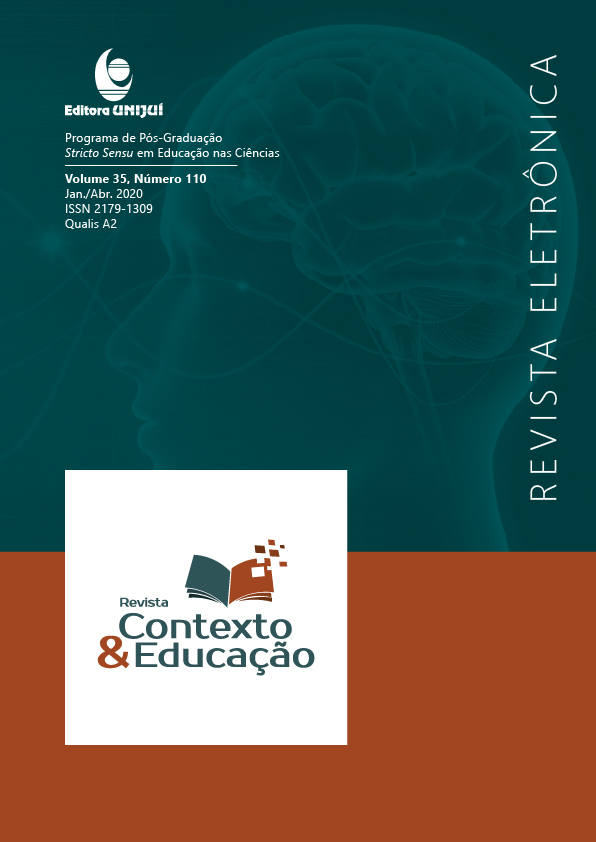ORGANIZAÇÃO DO ENSINO DE ARTE COM BASE EM PRESSUPOSTOS DA TEORIA HISTÓRICO – CULTURAL
DOI:
https://doi.org/10.21527/2179-1309.2020.110.44-65Keywords:
Ensino de Arte; Teoria Histórico-Cultural; experimento didático; funções psicológicas superioresAbstract
A presente pesquisa, de natureza qualitativa, teve como objetivo de investigar como o ensino de Arte pode ser organizado para que promova o desenvolvimento dos estudantes. Para a sua efetivação, foram realizadas análises documentais, estudos bibliográficos e um experimento didático. Os estudos bibliográficos foram fundamentados em autores da Teoria Histórico-Cultural e obras de outros autores que trabalham com o tema desta pesquisa com base no mesmo referencial teórico e que proporcionaram a compreensão sobre a relação entre a Arte o desenvolvimento das funções psicológicas superiores. O experimento didático foi desenvolvido com estudantes do 3º ano do Ensino Fundamental de uma escola pública de um município da região noroeste do Estado do Paraná. A análise das atividades organizadas e desenvolvidas por meio do experimento didático possibilitou a identificação das funções psíquicas superiores mobilizadas durante as atividades de ensino, bem como as ações docentes que foram determinantes para a promoção da aprendizagem s e, consequentemente, para o desenvolvimento psíquico dos estudantes.
Downloads
Published
How to Cite
Issue
Section
License
By publishing in Revista Contexto & Educação, authors agree to the following terms:
All works are published under the Creative Commons Attribution 4.0 International License (CC BY 4.0), which allows:
Sharing — to copy and redistribute the material in any medium or format;
Adaptation — to remix, transform, and build upon the material for any purpose, even commercially.
These permissions are irrevocable, provided that the following terms are respected:
Attribution — authors must be properly credited, a link to the license must be provided, and any changes made must be indicated.
No additional restrictions — no legal or technological measures may be applied that legally restrict others from doing anything the license permits.
Notices:
The license does not apply to elements that are in the public domain or covered by legal exceptions.
The license does not grant all necessary rights for specific uses (e.g., image rights, privacy, or moral rights).
The journal is not responsible for the opinions expressed in the articles, which are the sole responsibility of the authors. The Editor, with the support of the Editorial Board, reserves the right to suggest or request modifications when necessary.
Only original scientific articles presenting research results of interest that have not been previously published or simultaneously submitted to another journal with the same purpose will be accepted.
Mentions of trademarks or specific products are intended solely for identification purposes and do not imply any promotional relationship by the authors or the journal.
License Agreement (for articles published from October 2025): Authors retain the copyright to their article and grant Revista Contexto & Educação the right of first publication.


